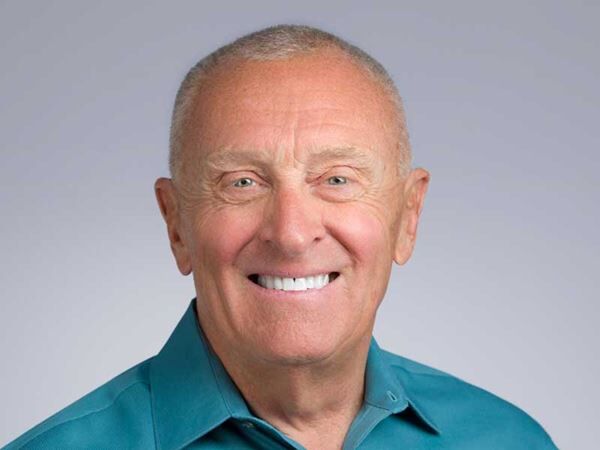Meet 'Big Alex,' the Brazilian judge who led Bolsonaro's trial and challenged Trump and Musk
News > Politics & Government News

Audio By Carbonatix
11:03 PM on Saturday, September 13
By MAURICIO SAVARESE
BRASILIA, Brazil (AP) — Some Brazilian historians now count 14 coup attempts in the republic’s 136 years. Some have been successful, including the one that installed a military dictatorship between 1964-1985.
But only the latest, which a Supreme Court panel ruled was orchestrated by former President Jair Bolsonaro, ended with prison sentences for its leaders, instigators and supporters, many of whom are already behind bars.
To a large extent, the unprecedented outcome is the result of one man’s drive.
Supreme Court justice Alexandre de Moraes, the judge who spearheaded the case, has become a hero to some Brazilians and a zealot to others.
In Brazil he is better known as “Xandão,” or “Big Alex” in Portuguese. Married with three children, he is widely known for his shiny bald head and use of soccer metaphors, but also for what many see as swift and divisive actions.
De Moraes, 56, has taken on politicians, billionaire Elon Musk and Bolsonaro supporters who damaged government buildings in Brasilia, the capital, during a 2023 riot that prosecutors said was instigated by the former president.
From now on, Brazilian history books will call him the Supreme Court judge who led a five-member panel to sentence Bolsonaro to 27 years and three months in prison.
He led the trial despite pressure from the U.S. government that sanctioned de Moraes and imposed tariffs on Brazil because of the process against Bolsonaro, an ally of U.S. President Donald Trump.
Only one of the justices, Luiz Fux, disagreed and asked for Bolsonaro to be acquitted. But de Moraes’ sway in the case is such that the longest serving member of the court, Justice Gilmar Mendes, and Chief Justice Luis Roberto Barroso popped by the panel’s room at end of the trial solely to defend his work.
The panel also ruled against seven close allies of the former president, including top military men.
“I may have disagreements in some issues with Justice de Moraes," said José Eduardo Cardozo, a former justice minister who first met de Moraes about 30 years ago. "But in general his standing is rigorously righteous for those who understand constitutional law and defend the rule of law vehemently.”
For Cardozo, the criticism of how he handled Bolsonaro's trial is “purely political.”
Celso Vilardi, a lawyer for Bolsonaro, took swipes at de Moraes after Fux voted almost entirely in disagreement in the case.
“I am vindicated,” Vilardi told journalists Wednesday. “This was a technical vote.”
But before he became Bolsonaro’s lawyer in January, Vilardi had nothing but praise for de Moraes.
Before the Bolsonaro case began, de Moraes’ public image was one of a backward, conservative judge.
He frequently was mocked on social media for two videos. One shows him destroying a small marijuana plantation with his bare hands. The other exposes his discomfort among Indigenous Brazilians, who danced as they repeated his name.
Now social media is filled with images of de Moraes. Right-wing content shows the judge asking people for their private information if they don’t want to be jailed, while left-wing voters portray him as Superman, an unstoppable hero rising to the task. Some memes mock his seemingly more aggressive decisions when his soccer club Corinthians loses.
Friends, adversaries and colleagues have said over the years that de Moraes does not waiver when on duty.
“History teaches us that impunity, omission and cowardice are not options for pacification, because the apparently easier path, and only apparently, is that of impunity, omission, leaving traumatic scars in our society and corrodes our democracy,” de Moraes said during the first week of Bolsonaro's trial.
A university professor and former public prosecutor, he was appointed to the country’s top court in 2017 by President Michel Temer, a conservative, after a stint as his justice minister. At his confirmation hearing, some people who became known Bolsonaro supporters publicly praised de Moraes, such as Damares Alves, an evangelical leader who is now a senator.
At the time, Alves said de Moraes was an unbiased, serious judge who has the right values.
Fast forward to 2025 and many of those Bolsonaro allies now call de Moraes a “communist” and a “dictator” who deserves to be impeached and removed from the court for allegedly overstepping in the Bolsonaro investigation, including ordering house arrest for the embattled far-right leader.
“I have to apologize to my colleagues at the Workers’ Party," Alves said hours before Bolsonaro was convicted. “They said we would change our minds about Alexandre de Moraes and they were right.”
One of the criminal counts against the former president makes reference to military allies plotting to shoot the justice dead.
Temer, the former president, noted in a May interview with daily newspaper Folha de S.Paulo that many alleged coup plot participants were initially jailed but then released by de Moraes.
“He is no radical,” Temer said.
But not everyone agrees he does a good job, including figures outside Brazil.
“Alexandre de Moraes is an evil dictator cosplaying as a judge,” Musk said.
The billionaire attacked de Moraes last year after the justice threatened to suspend the social medial platform X in the nation of more than 200 million people.
The disagreement involved a monthslong dispute with Musk over free speech, far-right accounts and misinformation. In the end, the tech billionaire complied with all of de Moraes’ demands, including blocking certain accounts from the platform, paying outstanding fines and naming a legal representative in Brazil, and the justice restored the social media’s service.
Recently, Trump's administration imposed a 50% tariff hike on Brazilian exports with vocal support from Bolsonaro’s sons. The U.S. also sanctioned de Moraes over alleged suppression of freedom of expression and overseeing the Bolsonaro trial.
De Moraes previously identified with center-right administrations and politicians. Between 2015 and 2016, he was Sao Paulo state’s public security secretary in a conservative setting.
Some of that experience became obvious during his term as president of Brazil’s top electoral court, overseeing the 2022 election.
His efforts to fight disinformation and protect the integrity of the electoral process were praised by moderates, international institutions and supporters of President Luiz Inácio Lula da Silva as key to the results being respected.
The electoral court role was added to one he received at the start of the Bolsonaro administration as rapporteur of a “fake news” probe focused on online attacks against members of the Supreme Court. De Moraes was handpicked based on his security experience in Sao Paulo.
The two investigations resulted in arrests of political figures, blocks on social media accounts and lawsuits against business leaders, but in some ways also converged in the coup plot.
As the verdict and sentencing phase of Bolsonaro's trial ended Thursday, de Moraes made an effort to reign in his emotions as his peer Flávio Dino took almost five minutes to praise his work.
“Justice Alexandre sees this as finishing line," Dino said. “But there will be other trials, other tasks. This is a high point in his career, and we have to pay a tribute to him. That’s not very common in our community.”
___
Eléonore Hughes contributed from Rio de Janeiro.












